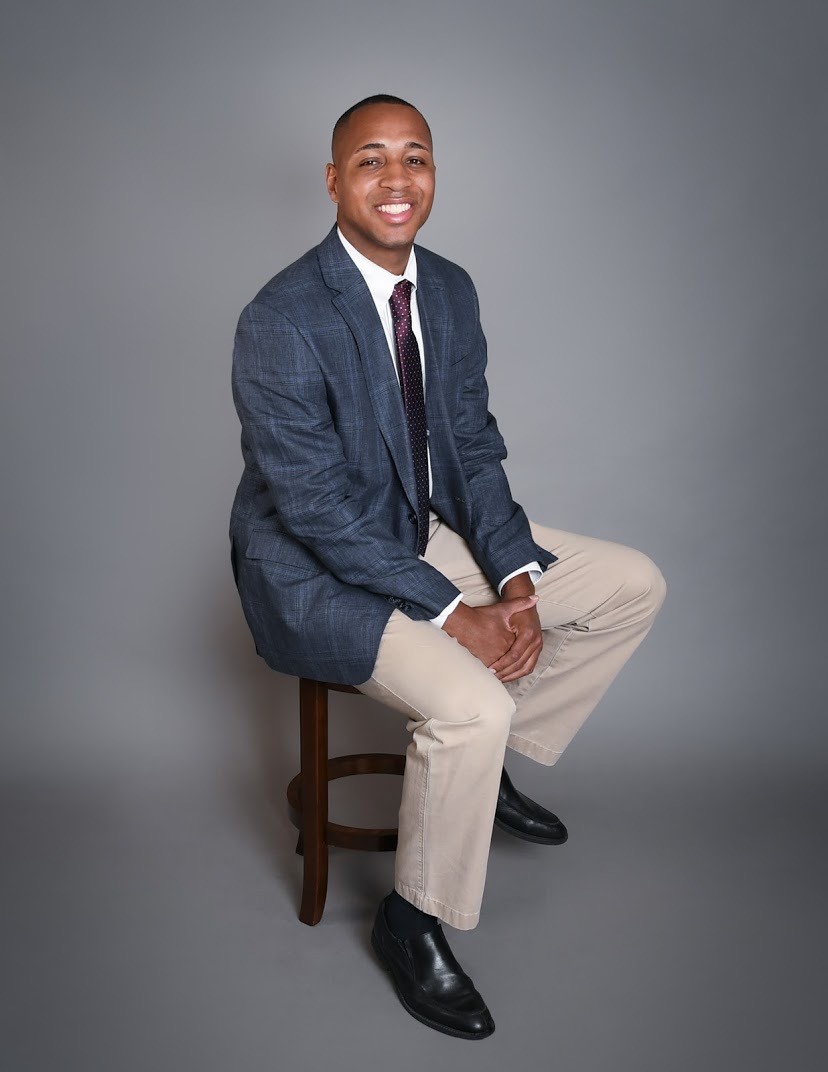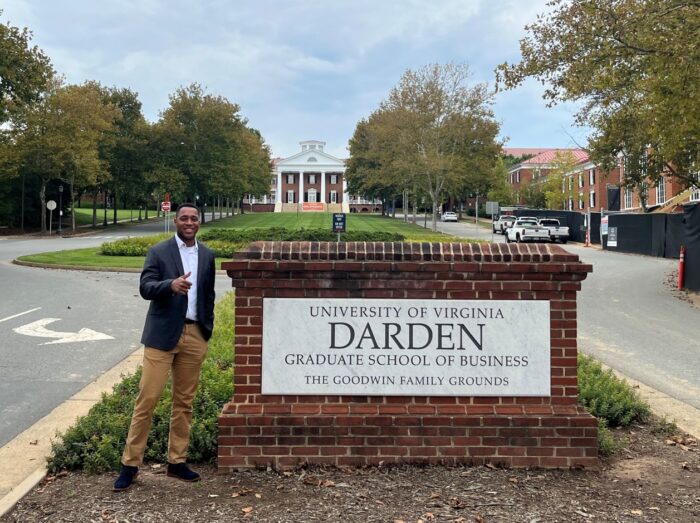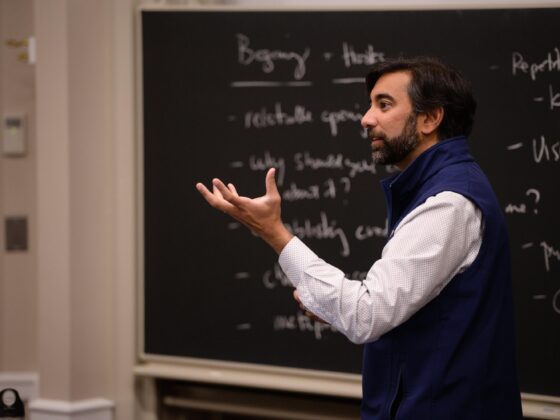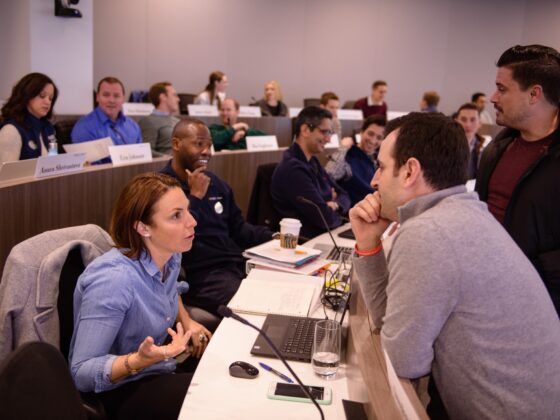Steven Daley (Class of 2025), a Darden Part-Time MBA student, is pursuing his MBA to learn more about business fundamentals and prepare himself for future career goals. He chose Darden’s Part-Time MBA program for its case method, faculty and reputation. In today’s blog post, Daley details how the program has helped him to process information and contribute to discussions effectively. He also shared advice for prospective students — recommending they lean into their own stories and differences.
Q: What’s your background?
A: I’m originally from the Boston area and attended Colby College in Maine, where I majored in Economics and Environmental Policy. I also played on the men’s basketball team, serving as a team captain during my senior year. I moved to Arlington, Virginia around two years ago, and currently work as a Principal Financial Analyst at Mercury Systems, a middle-market defense electronics company.
Q: How did you become interested in pursuing an MBA?
A: I had a mentor that encouraged me to consider pursuing an MBA before turning 30 and it was something I thought about for a long time. When I reflected on my undergraduate experience, I felt like I didn’t get to dive into as many business-related concepts and topics. On top of that, working in Corporate Finance, I’ve learned there’s a difference between knowing the conceptual definition of things vs. how they actually play out in a real-world setting. Lastly, when I looked at the C-suite of most companies, I noticed that the CEO, CFO, Chief Strategy Officer typically have an MBA, so it felt like an MBA would help position me well for my future career goals.
Q: And how did you get interested in in Darden?
A: Darden was always on my radar. Living in Northern Virginia, I was aware of the Executive MBA program, but it didn’t seem like the best fit for me timeline wise. And then the Part-Time MBA program was announced, and I felt like the program had a lot of the things I liked about Darden – the case method, the faculty, and reputation – but I could keep working while pursuing my degree. Being able to apply some of the things I’m learning in class in real time at work has been great.
Q: Do you have a favorite memory from the program so far?
A: My favorite memory so far is from the end of Quarter 2 in December when my cohort leaned into organizing Holiday themed events like – an ugly sweater contest and cookie swap during one of our in-person class nights, capped off by a holiday party in Tysons Corner at the end of the Quarter. I’m not sure these were things I expected to be part of my Part-Time MBA experience, but I’ve been struck by how a majority of the cohort is genuinely interested in getting to know each other and connecting outside of class. Additionally, most people are located in the D.C. area which makes is even easier to get together.
Q: What’s been the impact of the program for you so far?
A: Being able to consume large amounts of information, quickly discern what’s important and figure out the relevant takeaways/where I can add to a conversation. During class, you have a lot of different inputs – You have the professor who’s teaching the case and the concepts that go along with it, you have your classmates who are sharing their perspectives and experiences, and then you also have you and your own experiences and ideas. Having to process all these different inputs and figure out where and what you can contribute to the discussion is not only useful in the program – It has really helped me at work. I’m now more proficient in asking probing questions, identifying problems, formulating solutions, and evaluating potential outcomes from different perspectives.
Q: What’s your favorite or best piece of advice for prospective students?
A: Lean into your own story and your why. When I first thought about applying to business school, I worried that being early in my career or only working in one industry would potentially be viewed as negatives. But what I realized, and this has been reinforced during my time in the program, is what makes you different from the next student is actually a strength. It’s a benefit and additive to the broader class. When you learn through the case method, you want as many different perspectives and experiences in the room, so make sure your difference comes through as you tell your story through your application.





